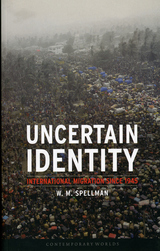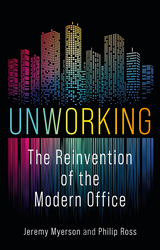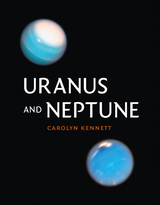11 start with U start with U

Henderson explores the ways we have perceived ugliness throughout history, from ancient Roman feasts to medieval grotesque gargoyles, from Mary Shelley’s Frankenstein to the Nazi Exhibition of Degenerate Art. Covering literature, art, music, and even the cutest possible incarnation of the term—Uglydolls—she reveals how ugliness has long posed a challenge to aesthetics and taste. She moves beyond the traditional philosophic argument that simply places ugliness in opposition to beauty in order to dismantle just what we mean when we say “ugly.” Following ugly things wherever they have trod, she traverses continents and centuries to delineate the changing map of ugliness and the profound effects it has had on the public imagination, littering her path with one fascinating tidbit after another.
Lovingly illustrated with the foulest images from art, history, and culture, Ugliness offers an oddly refreshing perspective, going past the surface to ask what “ugly” truly is, even as its meaning continues to shift.

In Ukraine: A Nation on the Borderland, Karl Schlögel presents a picture of a country which lies on Europe’s borderland and in Russia’s shadow. In recent years, Ukraine has been faced, along with Western Europe, with the political conundrum resulting from Russia’s actions and the ongoing Information War. As well as exploring this present-day confrontation, Schlögel provides detailed, fascinating historical portraits of a panoply of Ukraine’s major cities: Lviv, Odessa, Czernowitz, Kiev, Kharkov, Donetsk, Dnepropetrovsk, and Yalta—cities whose often troubled and war-torn histories are as varied as the nationalities and cultures which have made them what they are today, survivors with very particular identities and aspirations. Schlögel feels the pulse of life in these cities, analyzing their more recent pasts and their challenges for the future.

The Bolognese naturalist Ulisse Aldrovandi was a prolific writer, polymath, and prodigious collector who amassed the largest collection of naturalia in sixteenth-century Europe, as well as hundreds of colored drawings detailing them. Many of these drawings found their way into his illustrated publications, most of which were published posthumously.
This book provides a concise yet comprehensive portrait of Aldrovandi, paying particular attention to two aspects: the role that the newly discovered continent of America played in his research interests, and his study of abnormalities of physiological development in organisms. Peter Mason gives insight into Aldrovandi’s fascinating life, his early work on antiquities, his natural history and other collecting activities, his network of correspondents and patrons, and the influence and legacy of his collection and publications.

W. M. Spellman chronicles how after 1945, migration patterns expanded in numbers of people and origin countries, due to overpopulation, poverty, violent conflicts, and the lowered costs of air travel. Uncertain Identity sets these patterns in the context of issues such as the impact of voluntary and forced relocation on the migrants and destination countries, the significance of south-to-north migrations, and recent enactments of restrictive immigration measures in developed nations. Spellman also considers temporary and refugee migrations and the ways in which refugees maintain cultural traditions despite their new environments.
An incisive study with global breadth, Uncertain Identity offers invaluable analysis for specialists in political science, sociology, and economics.

Drawing upon both philosophical analysis and the latest scientific discoveries, Svendsen argues that the knowledge we glean from our relationships with our pets is as valid and insightful as any scientific study of human-animal relations. With this entertaining and thought-provoking book, animal lovers and pet owners will gain a deeper understanding of what it is like to be an animal—and in turn, a human.

Unearthing the Underworld reveals the hidden world of rocks—the keepers of secrets of past environments, changing climates, and the pulse of life over billions of years. Even the most seemingly ordinary stone can tell us much about the history of this planet, opening vistas of ancient worlds of ice, raging floods, strange unbreathable atmospheres, and prehistoric worlds teeming with life. Remarkably, many types of rocks owe their existence to living organisms—from the remains of bodies of dead animals to rocks formed from rotting ancient forests, or even created by the activity of fungi, bacteria, and viruses. Anything but dull and uninteresting, rocks are intriguing portals that illuminate the secret underworld upon which we live.

“The United States does not do nation building,” claimed Secretary of Defense Donald Rumsfeld three years ago. Yet what are we to make of the American military bases in Korea? Why do American warships patrol the Somali coastline? And perhaps most significantly, why are fourteen “enduring bases” being built in Iraq? In every major foreign war fought by United States in the last century, the repercussions of the American presence have been felt long after the last Marine has left. Kenneth J. Hagan and Ian J. Bickerton argue here that, despite adamant protests from the military and government alike, nation building and occupation are indeed hallmarks—and unintended consequences—of American warmaking.
In this timely, groundbreaking study, the authors examine ten major wars fought by the United States, from the Revolutionary War to the ongoing Iraq War, and analyze the conflicts’ unintended consequences. These unexpected outcomes, Unintended Consequences persuasively demonstrates, stemmed from ill-informed decisions made at critical junctures and the surprisingly similar crises that emerged at the end of formal fighting. As a result, war did not end with treaties or withdrawn troops. Instead, time after time, the United States became inextricably involved in the issues of the defeated country, committing itself to the chaotic aftermath that often completely subverted the intended purposes of war.
Stunningly, Unintended Consequences contends that the vast majority of wars launched by the United States were unnecessary, avoidable, and catastrophically unpredictable. In a stark challenge to accepted scholarship, the authors show that the wars’ unintended consequences far outweighed the initial calculated goals, and thus forced cataclysmic shifts in American domestic and foreign policy.
A must-read for anyone concerned with the past, present, or future of American defense, Unintended Consequences offers a provocative perspective on the current predicament in Iraq and the conflicts sure to loom ahead of us.

Over the past one hundred years, the office has been integral to the development of modern society. It has shaped the architecture of our cities, the behavior of our organizations, and the everyday movements of millions of people. In 2020, however, the global pandemic brought our attendance in the office to an abrupt halt and triggered a complete reevaluation of the purpose of the workplace. This book offers a panoramic view of the office and explores what happens next. The authors advance a manifesto for “unworking”—unlearning old habits and rituals established for an outdated office and crafting and creating new ones fit for an age of digital technology, design innovation, and diverse workforces.

The most distant planets in our solar system, Uranus and Neptune were unknown by the ancients—Uranus was discovered in the 1780s and Neptune only in the 1840s. Our discovery and observation of both planets have been hampered by their sheer distance from Earth: there has only been one close encounter, Voyager 2 in the late 1980s. The Voyager mission revealed many enticing details about the planets and their moons but also left many more questions unanswered. This book is an informative and accessible introduction to Uranus, Neptune, and their moons. It takes readers on a journey from discovery to the most recent observations made from space- and ground-based telescopes, and it will appeal to amateur and professional astronomers alike.

USA traces a history that spans from early skyscrapers and suburbs in the aftermath of the American Civil War up to the museums, schools and ‘green architecture’ of today. Wright takes account of diverse interests that affected design, ranging from politicians and developers to ambitious immigrants and middle-class citizens. Famous and lesser-known buildings across America come together--model dwellings for German workers in rural Massachusetts, New York’s Rockefeller Center, Cincinnati’s Carew Tower, Frank Lloyd Wright’s Taliesin West in the Arizona desert, the University of Miami campus, the Texas Instruments Semiconductor Plant, and the Corning Museum of Glass, among others--to show an extraordinary range of innovation.
Ultimately, Wright reframes the history of American architecture as one of constantly evolving and volatile sensibilities, engaged with commerce, attuned to new media, exploring multiple concepts of freedom. The chapters are organized to show how changes in work life, home life and public life affected architecture--and vice versa. This book provides essential background for contemporary debates about affordable and luxury housing, avant-garde experiments, local identities, inspiring infrastructure and sustainable design.
A clear, concise and richly illustrated account of modern American architecture, this timely book will be essential for all those who wonder about the remarkable legacy of American modernity in its most potent cultural expression.

The essays in this book explore aspects of this relationship; some consider their role in the debate concerning human perfectibility, while others examine the rise of secularism. Further contributions reflect upon the apparent failure of the modern Communist utopia, note the recent reappearance of apocalyptic themes in fiction and social theory, or draw on the contributions of feminism and ecology. As our century ends, it seems that utopia and the millennium are once more locked in an uneasy embrace.
With essays by Louis Marin, J. C. Davis, Louis James, Gregory Claeys, Krishan Kumar, Vita Fortunati, David Ayers, Jan Relf and John O'Neill.
READERS
Browse our collection.
PUBLISHERS
See BiblioVault's publisher services.
STUDENT SERVICES
Files for college accessibility offices.
UChicago Accessibility Resources
home | accessibility | search | about | contact us
BiblioVault ® 2001 - 2024
The University of Chicago Press









